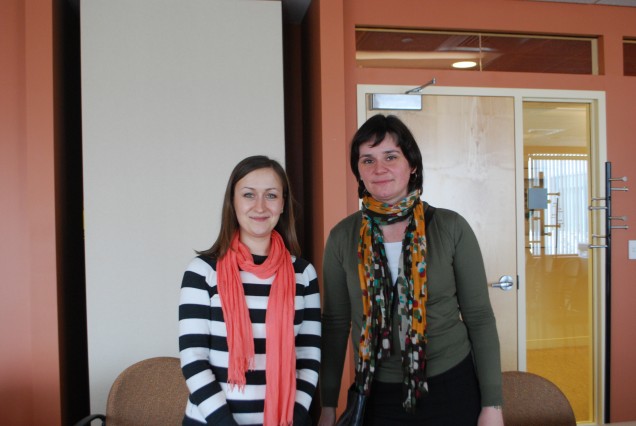Spotlight on..Elena Blokhina
Elena Blokhina, MD, PhD, Co-Investigator of the Russia ARCH Cohort and Deputy Director of the Valdman Institute of Pharmacology at First St. Petersburg Pavlov State Medical University
As told to URBAN ARCH Admin Core staff, April 2014
What led you to become a doctor and substance use researcher?
I started my career with preclinical research in neuropsychopharmacology. I did preclinical studies with morphine and cocaine and after that I developed an allergy to animals, which led me to change my career and start working in clinical research. I then completed an addiction psychiatry internship and afterwards became an addiction psychiatrist. I completed my MD training and later received a PhD in pharmacology and preclinical research. After that I completed psychiatry courses and the addiction psychiatry internship.
What are you most interested in regarding addiction?
With addiction, it is mostly opioid dependence treatment and alcohol treatment, as well as co-morbidities including HIV infection and Hepatitis C. It is really common in this population. It involves both dependence and HIV, and they really influence on each other.
Do you feel that you were influenced by the populations in your city and your desire to help them?
In St. Petersburg, there are no specific regions where we can say there are a lot of injection drug users, because they are spread out around the city. There are specific places, but they are really small places. But it’s really interesting for me, because the mechanisms of addiction are similar between alcohol and opioid dependence, in addition to the rewards system in learning how it works and what might help people. For now we can substitute something, we can block the receptor, but we cannot really influence the mechanisms of development. The number of HIV infected have gone up, and we have to do something about that. The only way is just to do the research in this field and to find out the possible ways of how to deal with this situation.
Pictured above l-r: Natalia Gnatienko and Elena Blokhina
How has your psychopharmacology background impacted you as an HIV researcher?
I think the knowledge about the psychology of injection drug users may help prevent the spread of HIV infection, as it may allow us to understand and address risk behaviors. Sex risk behaviors are important to address, because while the epidemic started with injection drug users, we now see that sexual transmission has become more frequent compared to previous times.
So what do you think are the next steps for URBAN ARCH and Russia as a whole?
I think we need to analyze the data of this study, which might help us better understand the condition of people with HIV in Russia. We can then also look at data across Boston and Uganda, and maybe we can find a common way of how to solve this problem and find new targets for treatment, as well as prevent the development of complications.
What do you think is the most important question that needs to be answered in Russia regarding alcohol use and HIV?
I think we need to understand the influence of alcohol on HIV progression. Maybe people with HIV need to not use alcohol at all and understand how severe it can be, it’s really important to know. It’s the combination of these two factors, the dramatic complications, and deaths in this population. I have seen a lot of them and they want to stop, but there are a lot of things they are afraid to do. They don’t want to take ART as they think it will speed up the end and will lead to death, because they saw a lot of people who started ART and died. We need to overcome all these barriers, and alcohol use is an additional factor in this.
What do you like to do in Boston when you are in town for the URBAN ARCH Annual Meeting?
I like to walk around Boston. It is a very pleasant place, because the architecture is not really common compared to other parts of the US. I have been to several cities, and Boston has a specific architecture and atmosphere. It is a really pleasant place. People here are a little bit different than other places. I think it is related to the number of universities here. Maybe more intelligent, but I feel the difference between cities, even the difference between Moscow and St. Petersburg.
What is one surprising thing about yourself? What do you like to do in your free time?
I like to play tennis. I don’t have a lot of experience in it since I just started about two years ago. My youngest son goes cycling and in the middle of this cycling area there are tennis courts, my husband and I decided to start playing while we were waiting for him.
